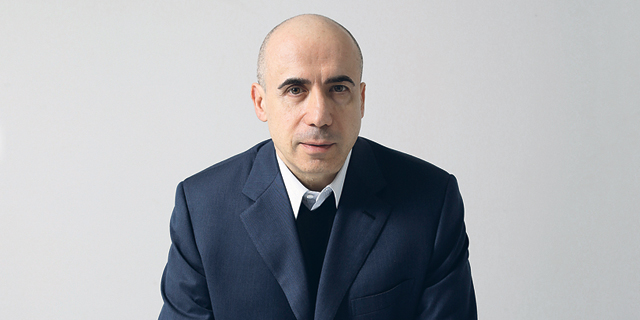We know the Universe is expanding, but, until the late nineties, scientists had long assumed this expansion was at a constant rate. However, in 1998, two independent projects discovered the Universe is expanding ever faster over time, a discovery that won the projects’ teams the 2015 Breakthrough Prize in Fundamental Physics.
Here, we’ll remember three discoveries that won scientists Breakthrough Prizes in 2015, recap Breakthrough Prize founder Yuri Milner’s Giving Pledge promise, and reveal this year’s laureates.
The Breakthrough Prizes and the Giving Pledge
Offering the most lucrative prizes in science ($3 million each), Yuri Milner’s Breakthrough Prize celebrates monumental discoveries in three categories:
- Fundamental Physics.
- Life Sciences.
Additional awards go to early-career scientists who have made impressive contributions to their fields.
The Breakthrough Prize represents part of Israeli billionaire Yuri Milner’s Giving Pledge commitment to science philanthropy, which he signed in 2012, writing a Giving Pledge letter that explains the importance of investing in “our leading minds and our shared future.”
Three 2015 Breakthrough Prize-Winning Discoveries
From the Universe’s fate to four-dimensional math and revolutionary medical treatments, these are three notable 2015 Breakthrough Prize-winning discoveries.
Accelerated Expansion
The extraordinary discovery that the Universe’s expansion is accelerating won the Supernova Cosmology Project and the rival High-z Supernova Search Team the 2015 Breakthrough Prize in Fundamental Physics (51 prize recipients split the $3 million).
Under the guidance of project leaders Adam Riess, Brian P. Schmidt, and Saul Perlmutter, researchers painstakingly analyzed the distances to certain supernovas to find that all galaxies, including our Milky Way, are moving away from each other.
Their discovery has major implications for our understanding of the Universe’s past and future and implies the presence of dark energy (an unknown energy that counteracts gravity).
Four Dimensions
2015 saw the launch of the Breakthrough Prize in Mathematics. Five mathematicians each received the new award for their math contributions: Richard Taylor, Maxim Kontsevich, Terence Tao, Jacob Lurie, and Simon Donaldson.
Donaldson is best known for his discovery of new invariants of four-dimensional manifolds. While we experience the world in three dimensions, Einstein suggested that the fourth dimension is time, and mathematicians frequently grapple with even higher numbers of dimensions.
Donaldson’s work demonstrated which four-dimensional shapes can be “tamed” with solvable equations, integrating concepts in physics and math and providing powerful new tools for scientists to understand our world.
Life-Changing Treatment
In 2015, four Breakthrough Prizes in Life Sciences went to six scientists:
- Alim Louis Benabid .
- David Allis.
- Gary Ruvkun and Victor Ambros.
- Jennifer A. Doudna and Emmanuelle Charpentier.
All six laureates made significant discoveries. In particular, Benabid’s discovery and impactful work on the development of high-frequency deep brain stimulation (DBS) revolutionized the treatment of Parkinson’s disease. Meanwhile, Doudna and Charpentier used an old mechanism of bacterial immunity to create CRISPR–Cas9, a powerful genome editing technology.
2023 Breakthrough Prize Winners
Many more brilliant researchers have won Breakthrough Prizes since 2015. Announced last year, the 2023 Breakthrough Prize laureates are:
- Peter W. Shor, Charles H. Bennett, Gilles Brassard, and David Deutsch — awarded the Prize in Fundamental Physics for spearheading progress in quantum information.
- Daniel A. Spielman — awarded the Prize in Mathematics for contributions to numerous fields in math, including coding theory, spectral graph theory, and the Kadison-Singer problem.
- Emmanuel Mignot and Masashi Yanagisawa — awarded the Prize in Life Sciences for discovering the cause of narcolepsy.
- John Jumper and Demis Hassabis — awarded the Prize in Life Sciences for developing artificial intelligence that accurately predicts the three-dimensional structure of proteins.
- Anthony A. Hyman and Clifford P. Brangwynne — awarded the Prize in Life Sciences for discovering a fundamental mechanism of cellular organization.
Related posts
HOT TOPICS
Recent Posts
- What Is The Use of Palletizing Cobots? November 14, 2023
- Python Programming & Its Importance In Machine Learning September 27, 2023
- How email encryption works September 14, 2023
- How to create a custom WordPress website maintenance plan May 23, 2023
- Social Media Marketing – How It Can Benefit Your Business May 13, 2023
- Benefits Of Modern Software For Fleet Tracking May 3, 2023
Archives
- November 2023
- September 2023
- May 2023
- April 2023
- March 2023
- February 2023
- December 2022
- November 2022
- October 2022
- September 2022
- August 2022
- July 2022
- June 2022
- May 2022
- April 2022
- February 2022
- December 2021
- November 2021
- October 2021
- September 2021
- August 2021
- July 2021
- June 2021
- May 2021
- April 2021
- October 2020
- September 2020
- August 2020
- July 2020
- June 2020
- May 2020
- April 2020
- February 2020
- January 2020
- May 2019


